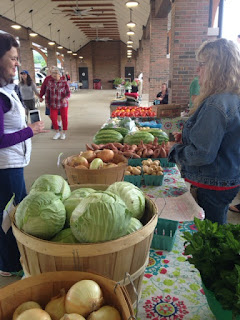"My diabetes is such a central part of my life...it did teach me discipline...it also taught me about moderation...I've trained myself to be super-vigilant...because I feel better when I am in control."
--Sonia Sotomayor
Today, diabetes reared its ugly head when I least expected
it. While shopping for fresh vegetables,
I saw a man suddenly slump over the bananas.
I rushed to his side, assisted him to a chair, and got a manager’s
attention.
When asked if he had diabetes; he replied yes. An employee was immediately dispatched to get
orange juice for the customer. Was it a
low blood sugar event? It very well
might have been. Only the doctors in the
emergency room will know. I am saying a prayer that he receives the help he needs.
The threat of low blood sugar - plus other complications such as high blood pressure, peripheral neuropathy, kidney disease, diabetic retinopathy, and gastroparesis - is a very real scare for
millions of Americans living with diabetes.
Managing diabetes is not spectator sport. Successfully managing diabetes takes work,
vigilance, and education. It requires
knowledge about healthy eating habits and importance of daily fitness routines. Can diabetes be managed? Yes.
The question for parents is, can diabetes be prevented? Yes. What
does it take to do that? The same as
managing diabetes: work, vigilance,
education, and knowledge about healthy eating habits and the importance of
daily movement. Making decisions to
ensure that our kids stay at a healthy weight. Choosing foods and drinks without added sugars.
ALL kids deserve access to healthy foods. ALL kids deserve parents who are
informed and health literate. ALL kids deserve the opportunity
to erase their nature deficits to ensure their mental health is balanced with
their physical health.
Without informed and health literate parents, our children’s risk of developing
diabetes is greatly increased. Diabetes
is a preventable disease, only if we dare to become embarrassed and do whatever
it takes to ensure our children’s health – and lives.
In gratitude,
Nancy L. Heinrich, MPH
Founder, Growing Healthy Kids






